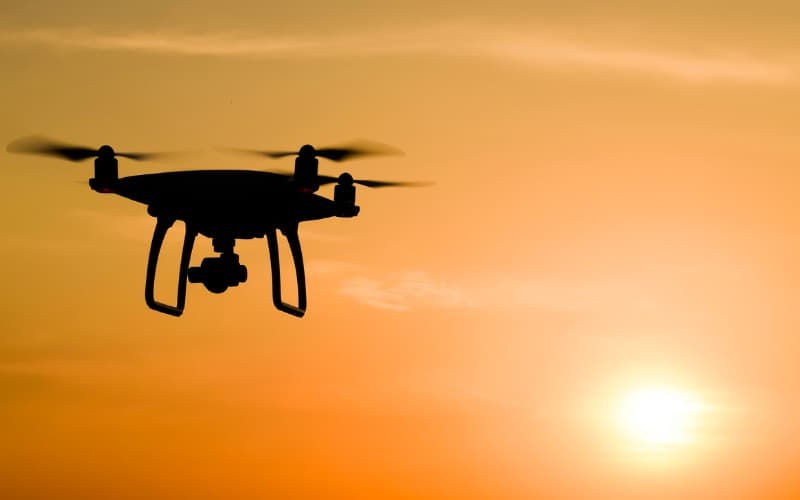When drones soared onto the scene a few years ago, professional photographers and videographers were quick to snap them up and start capturing sweeping aerial footage.
But so was everyone else.
Because anyone can own and operate a drone, there’s an array of operators out there with various skills and capabilities.
Finding a camera operator for your project is a big decision – using a drone for commercial work is a completely different story to shooting your mates on the beach.
Price, quality of work, qualifications and professional experience can vary dramatically depending on the operator, so how do you know what to look for to avoid making an expensive mistake?
It’s actually pretty easy.
Ask these 7 questions to find out if a drone operator is qualified and experienced enough to deliver the professional result you’re after.
#1 Can I see a current copy of your individual Remote Pilot Licence (RePL) and your company’s Remote Operators Certificate (ReOC)?
The Civil Aviation Safety Authority (CASA) governs Remote Piloted Aircraft (RPA) under the Civil Aviation Safety Regulations Part 101 (CASR101).
Drones that weigh less than 2kg being flown for commercial purposes can fly in the ‘excluded category’. The only requirements of the excluded category are to notify CASA five days before flying and follow standard operating conditions.
Drones over 2kg or where the pilot wants to fly outside the standard operating conditions, the pilot must be licensed or certified to fly. CASA strictly regulates the process for gaining RePL and ReOC licences with substantial training and operational competency required.
#2 Do you have an insurance policy that covers drone operations?
You need to consider insurance and liability in case a drone filming your project causes an accident.
If the done operator doesn’t have a suitable aviation public liability insurance policy, the victim/s could sue your organisation (and you personally) for damages.
A drone insurance policy is peace of mind that the responsibility for damages stops with the drone operator and their insurer.
#3 Can I see a copy of your Operators Manual?
CASA requires all drone pilots have an operator’s manual which describes the drone systems, personnel, flight operations, and procedures.
The manual will give you a look into the operations and safety culture of the organisation as well as its drone equipment.
#4 Can I see an example of a JSA completed for a recent project?
A Job Safety Analysis (JSA) shows that they consider all the potential risks before starting a project. A written JSA reviews the work steps and hazards and notes solutions for minimising or eliminating the risks.
This helps keeps everyone involved in the project and the general public in the area, safe.
RELATED: Should You Use Stock Video? 3 Things to Consider Before You Do
#5 What equipment will you use and why is it the best equipment for my project?
You want to find out what drone/s the pilot uses and also the camera and lens choice.
Some of the more basic drones like the DJI Mavic or DJI Phantom are suitable for basic filming and photography projects. They don’t allow for interchangeable cameras and lenses.
Professional drones can carry DSLRs with heavy lenses to shoot high quality RAW images and video, and can even be fitted with specialist equipment like infrared cameras.
If you are looking for high quality images and video, you need to make sure the equipment being used is suitable for the job.
#6 Do you have a backup if you experience equipment failure?
There’s only one chance to get the images with many video projects, and things can go wrong with drones.
With an event or tight deadline, there’s often no chance to come back a few days later and try again once the equipment is working.
Ask the drone operator if they have reliable backup equipment or if they can hire or borrow a high quality drone and camera if their usual equipment fails on the job.
RELATED: How to Write a Script For a Video – 6 Expert Tips
#7 What format will the files be supplied in?
When briefing your project, be clear about what you require from the drone operator.
Make sure the quote includes editing and post processing if you’re expecting a finished product.
For surveys, you may expect the images delivered catalogued and rendered into a 3D model so ask if that’s what’s included. If you request raw files or unedited footage, make sure the files will be provided in a format you can use.
If you aren’t sure what is and isn’t included, request a detailed quote and don’t be afraid to ask questions before commissioning the work. An experienced operator will be able to give you guidance based on other projects and their understanding of what you are trying to achieve.
If you have any questions about drone video production, don’t hesitate to contact our videographers.
Or if you’d like to see our work, check out the documentary we shot for Geraldton Fisherman’s Co-operative below or watch our showreel.


